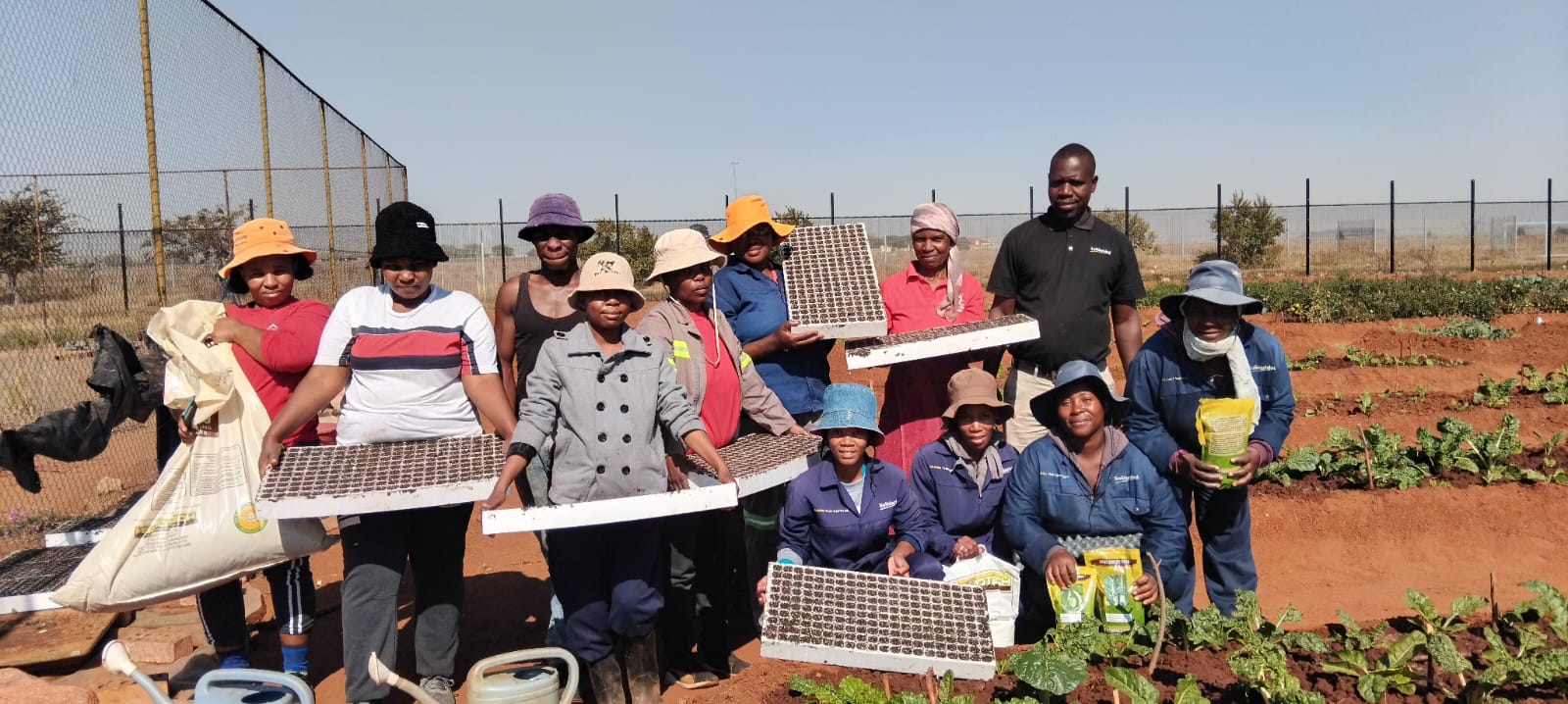
Maboloka, North West, South Africa//– Solidaridad Southern Africa has announced the successful completion of Phase 2 of its transformative agricultural programme.
Currently, in Phase 3, this initiative has empowered smallholder farmers across South Africa through sustainable farming practices, practical training, and improved market access. The program has made a notable impact, providing jobs, strengthening food security, and building resilient farming communities.
As part of Phase 2 of the SEF program, this collaboration created more than 2,000 job opportunities, generated approximately R12.7 million in agricultural produce, and provided direct support to over 1,362 smallholder farmers. Additionally, more than 9,153 school learners benefited from vegetable donations made to local institutions through these efforts.
The program’s emphasis on hands-on training and market access has resulted in significant improvements in farm productivity and local food supply. For instance, Nokuzola Mrhawuzeli, a farmer supported through the initiative, expanded her cultivated area from 10 to 13 hectares, significantly increasing her yields and income. Her efforts not only provided for her family but also benefited local institutions by supplying much-needed food.
As the programme transitions into its third phase, the focus shifts to long-term sustainability, particularly through skill-building and capacity development. A recent training program held at Bana Ba Lechacham Farm, located in Maboloka, Madibeng Municipality of North West in South Africa, demonstrated the program’s ongoing commitment to empowering farmers. The training focused on seedling production, where participants learned to grow and manage their seedlings for personal consumption and market sale.
“This training equips farmers with critical skills for producing their seedlings, which not only helps to secure food for their families but also provides them with the opportunity to generate income,” said Mohau Mailula, Solidaridad Country Manager for South Africa. She added, “In a community where many people are unemployed or reliant on minimal wages, this initiative offers hope and practical tools for economic independence.”
The seedling project is a vital component of the program, offering free manual and practical training to SEF participants. Seedling production makes an impact on the farmers as they usually buy seedlings from the supplier, which they have to collect after six weeks, and now farmers can produce their seedlings ready for transplanting in 4 weeks, depending on the crop variety.
Through this training, participants learn how to use grey water for irrigation in their backyard garden, make compost, apply fertilisers, and even prepare seedlings for export markets. Additionally, farmers share seedlings from demonstration plots with participants, enabling them to start their home gardens for family consumption and potential sales.
Food security remains a critical issue in many parts of rural South Africa, where unemployment rates are high, and most residents rely on social grants. This initiative directly addresses these challenges by teaching farmers how to cultivate crops and market their produce. “We see this program as more than just agricultural training. It is about giving people the tools to feed themselves, support their families, and improve their livelihoods,” explained Dumisani Ngonyama, Project Officer at Solidaridad.
Through the program’s emphasis on sustainability and good agricultural practices, the farmers involved are also contributing to a more balanced and inclusive agricultural system, in line with Solidaridad’s Theory of Change.
The theory outlines a pathway to creating prosperous and sustainable supply chains that work in harmony with nature while empowering farmers and workers to improve their livelihoods.
Phase 3 of the program aims to build on the success of previous phases, with a continued focus on sustainable agriculture, market access, and community resilience. Solidaridad Southern Africa remains committed to supporting smallholder farmers, helping them secure food for their families, create jobs, and contribute to the local economy.


